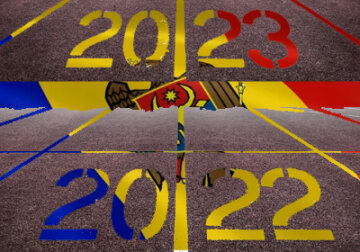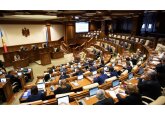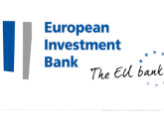
Retrospect 2022: it was a crazy year, it was harder than that one
Commentary by InfoMarket Agency
In 2022, after two years of pandemic crisis, the world finally "broke down". Military conflicts, geopolitical tensions, the energy crisis in Europe, blackouts, sanctions, hybrid warfare - all these events took place simultaneously and interconnectedly. They led to a slowdown in global economic activity and high inflation. For Moldova, it was a difficult and troubling year, requiring a lot of effort from the country's authorities, businesses and citizens. In 2022, the country was hit by a series of unfamiliar problems and challenges that had to be overcome in an emergency mode.
By tradition, before turning over the calendar of the New Year, InfoMarket agency captures the important social and economic events and trends of 2022.
The war in Ukraine and the unofficial end of the COVID-19 pandemic. Since February 24, when Russia's "special military operation" in Ukraine began, the focus of the world's attention has shifted from the pandemic to a new source of shock. Although the WHO did not announce the end of the pandemic (the organization expects to do so in the New Year), the topic of the coronavirus danger smoothly left the main agenda. In January 2022, severe restrictions were imposed due to the spread of a new strain of the coronavirus, "omicron". But already in March almost all pandemic bans were lifted, and in April the Covid-19 distribution center at Moldexpo was even closed. As of the end of the year, the weekly number of new cases of COVID-19 infection was several times lower than the daily number of those infected at the beginning of the year. Some experts argue that the pandemic has naturally subsided, but even with the mutation of the virus, global coverage is not expected. As for the war and its geopolitical and economic consequences, forecasts are restrained and cautious. Some experts believe that there are risks of military escalation, including to Moldova.
The country of the state of emergency. If two years ago the state of emergency in Moldova was introduced for the first time, then in 2022, days without state of emergency can be counted on the fingers. On February 24, after the state of emergency had already been declared, because of the gas crisis and the public health crisis, the parliament declared another state of emergency because of the situation in Ukraine and the security threats to Moldova. During the year, this regime was extended five more times, and the Commission for Emergency Situations approved a total of about 60 orders. On the one hand, this allowed the government to quickly extinguish new "fires," deviating from legal procedures and deadlines (Moldovan airspace was closed, restrictions were imposed on socially important goods, meetings and demonstrations were banned, control over the information space was tightened, budgetary funds were urgently disbursed, etc.). On the other hand, some of the measures taken were excessive and violated the principles of transparency (this applies, for example, to electricity prices or gas reserves in gas storage facilities). In autumn, due to the reduction of Russian gas supplies, the administration of the Transnistrian region resorted for the first time to the state of emergency regime in the economy.
Expensive energy independence. Having bitten the dust last winter, Moldovan authorities are starting to develop a long-term energy security strategy in 2022, as well as to create a legal framework (including through the state of emergency) and trade relations to eliminate the 100% binding of the domestic gas market to Russian gas supplies. The February events exacerbated the energy crisis and sharpened the search for alternative gas supply routes and power sources. In autumn, the MGRES (the main supplier of electric energy to the right bank) reduced the production of electric energy due to the reduction of gas supplies to Transnistria caused by a reduction in supplies by Gazprom. To overcome the energy crisis, Moldova builds up gas reserves in gas storages in Romania and Ukraine. We have to buy expensive electric power in Romania, diversify gas supply routes and... again negotiate for electric power supplies from MGRES. This year, Moldova for the first time received gas from the Trans-Balkan gas pipeline and tested the Iasi-Ungheni-Chisinau gas pipeline. The government is implementing various plans, including borrowed funds and grant support from development partners. But in general, energy diversification is expensive and has led to a multiple increase in energy tariffs for final consumers. To support citizens, the government is implementing a complex scheme of compensation for energy tariffs, allocating about 5 billion lei for the 2022-20223 cold period.
Dangerous stagflation. This year was marked by an unprecedented rise in prices - for energy and oil products, regulated tariffs and public utilities, and foodstuffs. In January-November 2022 the inflation rate was 29.26% and for 12 months it was 31.4%. At the same time a decline in the economy was registered. In the 3rd quarter of 2022 the volume of GDP decreased in real terms by 10.3% compared to the 3rd quarter of 2021, and seasonally adjusted GDP decreased by 11.8%. Economic recession combined with high inflation - stagflation, economists forecast, will be the trend in 2023 as well. This situation leads to an increase in poverty and social inequality, and the ability to compensate for stagflation is limited by an already deficit budget. It is noteworthy that government support programs and concessional lending programs continue to be implemented with financial and technical assistance from external partners. At the same time, several important packages of legislative changes and reforms have been announced, which are aimed at simplifying business activities, digitalizing the economy, and promoting e-commerce.
Complicated logistics and reshuffling of foreign trade relations. Because of the war in Ukraine, logistics chains and trade relations with traditional suppliers of various goods from the "eastern" direction (Belarus, Russia, Ukraine), primarily food, have been disrupted. While the government took some measures in an emergency mode in order to organize transport corridors for business, and retailers were looking for new alternative markets, in spring the consumer rush in Moldova ran out of buckwheat, salt, and sunflower oil became more expensive. By summer the situation stabilized - some goods from Ukraine, Belarus and Russia were replaced by European products. Some Russian goods, for example, cosmetic products, are under European sanctions and cannot physically get to Moldova (alternative routes are economically unprofitable). Other Russian producers managed to "change shoes" promptly and supplied their products with European certificates of production. This year the volume of import of Ukrainian products increased, which in no way pleased Moldovan producers, who previously could hardly compete with Ukrainian suppliers. And now that producers in Ukraine have been granted a package of benefits for the period of martial law, Moldovan producers are even more vulnerable.
Severe drought and production decline in the agricultural sector. The year 2022 turned out to be a difficult one for the Moldovan agriculture. Drought destroyed almost 90% of the corn harvest and a significant part of the harvest of other crops (sunflower, beet). The prices for fertilizers rose and the prices for ready agricultural production remained low and did not cover the expenses of agricultural producers. Russia's embargo on Moldovan agricultural products hit the horticulture and viticulture sector. Although agrarians were partially compensated for excises on diesel fuel, they could participate in various support programs, and by the end of the year a program of VAT refund to agricultural producers to cover their debts on many types of taxes, duties and fees was approved, representatives of specialized organizations believe that the strategic sector of the country is not paid enough attention and the consequences will be long-term.
The economic crisis has affected all sectors of the economy. Of all the sectors, perhaps only the transport industry has kept afloat and will end the year 2022 in the black due to the increased complexity of the logistics of freight and increased demand for passenger services. Investment activity in the country is minimal - the expected large-scale redeployment of investors from Ukraine to Moldova has not yet occurred, although a small migration of assets and labor force is observed in the ICT sector. As in previous years, residents of free economic zones (FEZ), mainly Balti FEZ, continued to increase their industrial production. The Frank Investment company, registered by the Danish Tunetanken, announced investments of $50 million. A fruit and vegetable processing factory Schöni Finefood started operating in Stefan-Voda - the Swiss investor planned to invest $12 million in the project and create 50 new jobs. In Straseni, the German BauTex Composites has launched a fiberglass materials production plant (investments of $20 million). Among the major transactions of the year, we should mention the purchase of 96% of Energbank shares by the Estonian company IuteCredit Europe. The largest bank in Moldova, maib, enters the Bucharest Stock Exchange. It will be the first Moldovan bank to be listed on the international exchange.
The refugee crisis and a heightened sense of solidarity. The war in neighboring Ukraine has triggered the largest migration crisis in Europe. According to the UN, nearly 8 million refugees from Ukraine were registered in the EU as of the end of the year, with 4.8 million of them receiving temporary UN protection or enjoying national protection schemes of the countries where they are housed. Nearly 87,000 refugees still remain on the Moldovan territory, and 11,400 of them have applied for asylum in our country. Managing this flow of migrants has proven to be a challenge. During the first days of the war, the citizens of the Republic of Moldova and volunteers provided enormous assistance to the refugees. For its generosity and hospitality, Moldova even began to be called "a small country with a big heart. This slogan became a business card of the country and actively promotes it including at the highest political level. Now, with UN support, temporary refugee centers are operating in Moldova, aid centers are being opened, employment programs are being promoted, and conditions for the socialization of Ukrainians in Moldova are being created. Refugees and their host families can receive financial and humanitarian assistance through the UN. At the same time, the influx of refugees supports domestic consumption in Moldova, including high demand in the rental housing market. Further migration of refugees to other countries or their return home will be economically tangible. After all, the number of refugees is comparable to the number of inhabitants of two major cities of Moldova, such as Cahul and Soroca... On the other hand, there are all preconditions for tightening migration policy worldwide, even without the context of the Russian-Ukrainian conflict.
Moldova received candidate status for EU membership. In spring Moldova, along with Ukraine and Georgia, applied for EU membership under an accelerated procedure, and already in summer our country received the status of candidate for EU membership. This status was granted with a big advance, because many conditions of the Association Agreement have not been realized yet or have not been realized in full. The European Commission put forward a number of requirements which Moldova must fulfill in order to become a full member of the "European Family". For example, it is necessary to complete the justice system reform, to intensify the de-oligarchization, to complete the public finance management reform, to fulfill the anti-corruption commitments, to ensure the energy security and sustainability, to strengthen the human rights protection, etc. The Transnistrian problem remains an important factor in the issue of European integration. In order to fulfill all the assigned tasks, a state secretary for European integration issues appears in each ministry. It is worth noting that the EU remains Moldova's main partner in the socio-economic sphere, in trade and in providing current support. Since October 2021, the EU has provided Moldova with more than 840 million euros in soft loans and grants and plans to continue supporting our country.
In the dark, but #withoutyou (#безвас) or #withoutPAS (#безPAS). In November, almost all of Moldova plunged into blackout twice. Amid massive Russian missile attacks on Ukraine's energy infrastructure, one of the transmission lines through which Moldova receives electricity automatically shut down in emergency mode. This event caused a lot of inconvenience to residents, but a flashmob was launched on social media to protest the Russian aggression, with the hashtag #bezvas. At the same time, opposition supporters responded with their own hashtag #bezPAS. And this is a typical example of the polarization of sentiments in society, which, on the one hand, has been highlighted by the Russian-Ukrainian conflict and the economic crisis, and on the other, is being manually stimulated by political opponents. More is yet to come... in 2023, local elections will take place in Chisinau. But the 2022 pre-election year was remembered for rising social tensions and numerous strikes. Protests were held by farmers and transport workers, and in the autumn large-scale anti-government protests organized by opposition parties began, while at the end of the year journalists and supporters of six TV channels that had been stripped of their broadcasting licenses for the period of the state of emergency were present at the rallies. It gets even more interesting from here, so stay tuned.
This condensed and subjective "cardiogram" of the year shows that "it was a hard year, it was harder than that one" (as the song goes). And we are at the very peak of turbulence. In the New Year, we will all need strength, balanced decisions, and moral and financial support to cope with the new challenges.
InfoMarket Agency wishes you good luck, optimism, good health, accomplishments and good news in 2023!







